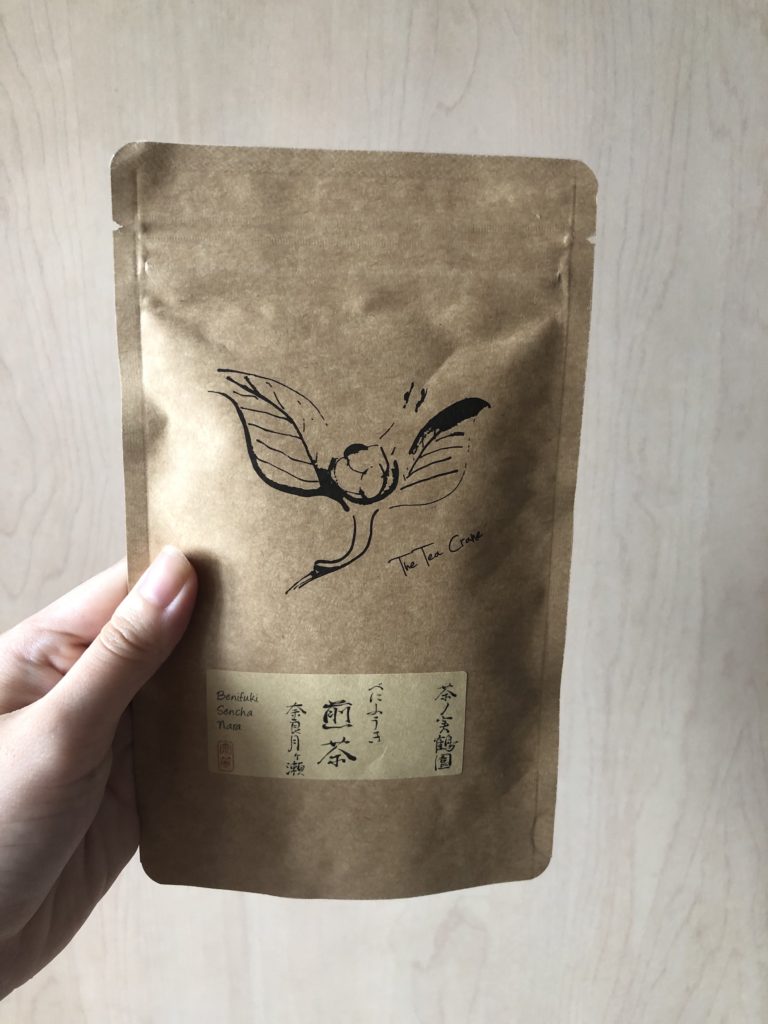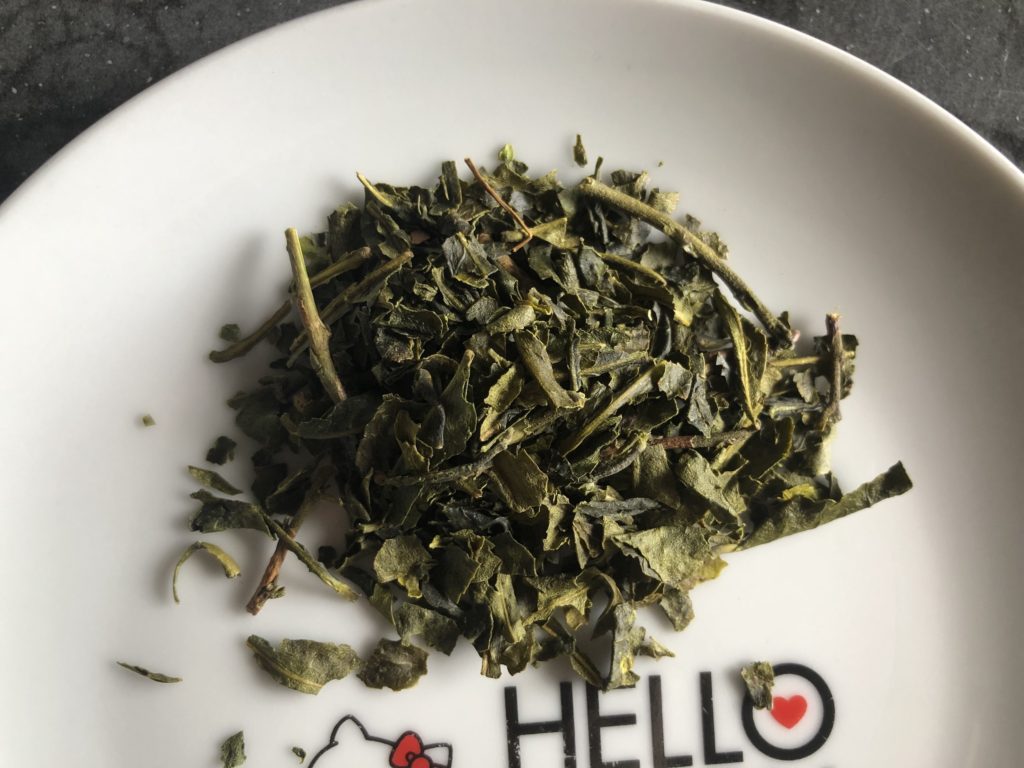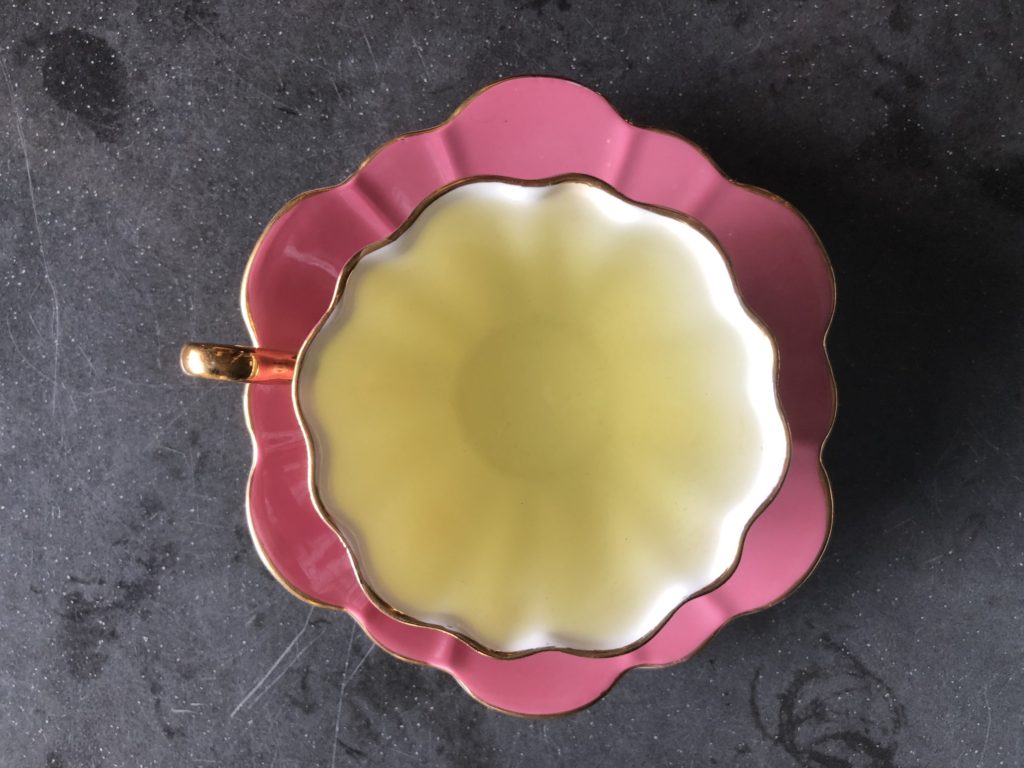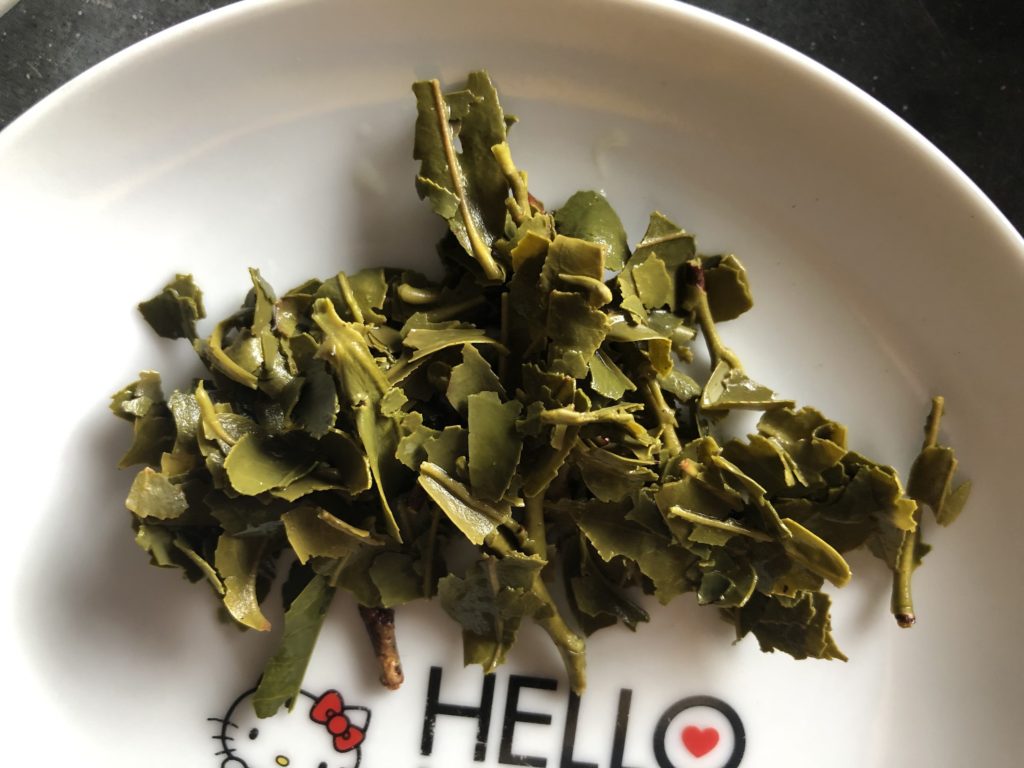I’m back with another (and the last) tea made from the Benifuuki cultivar! This is a sencha from Nara and it’s very interesting. According to the booklet, this sencha “is intended to be functional as opposed to simply a delicious tea. The tea leaves used for manufacturing this rather crude looking green tea are from the autumn harvest.”

This description is important because the two sessions I had for the tea could be summed up as: desperately looking for and failing to find the floral note in this tea.
Spoiler alert: this means I did not like the tea.
First Impressions

The dry leaves were a bit of a shock, since I saw fairly large pieces (it looked like someone chopped the leaves) and lots of stalks/twigs. It smelled very herbal and vegetal, a pretty far cry from my other two experiences with teas made from Benifuuki.
Tasting Notes

The first steep produced very light green tea liquor that had a very strong herbal and medicinal note. I didn’t get any floral notes in the first session, but I might have gotten one in the second (although it was just a brief impression rather than a proper “I taste a floral note”). By the time I finished the cup, I had the feeling that I was drinking grass.

The tea liquor from the second steep onwards was a slightly darker (to me!) but still light green colour with very slight floral fragrance. The medicinal and herbal notes were still very strong. When I opened the pot, the wet leaves smelt like an amped up version of the kamairicha. Although I managed to push through five steeps on the first session and three on the second session, the notes in this tea never really evolved – it was consistently grassy and herbal. Personally, not the type of tea that I enjoy drinking.

Now, the spent leaves were interesting because the leaves were very rough and the ‘twigs’ were hard and did not feel like stems. Given that autumn is when the tea plants are pruned, a part of me wondered if the result of the pruning was the base material for making this tea.
Overall Thoughts
Given that I really enjoyed the Benifuuki wakoucha (aged and un-aged) as well as the Benifuuki Kamairicha, I was prepared to love this tea as well. Unfortunately, all the notes that I enjoyed in the other Benifuuki forms were absent from this tea. It might have a lot of health benefits, as mentioned in the booklet, but this is not a tea I see myself enjoying.

Another very light tea! It’s a pity that you didn’t like this one, I wonder where the floral tones went!
I’m thinking maybe it’s the lack of oxidation? Or maybe because it’s an autumn harvest! Honestly it’s so fascinating!